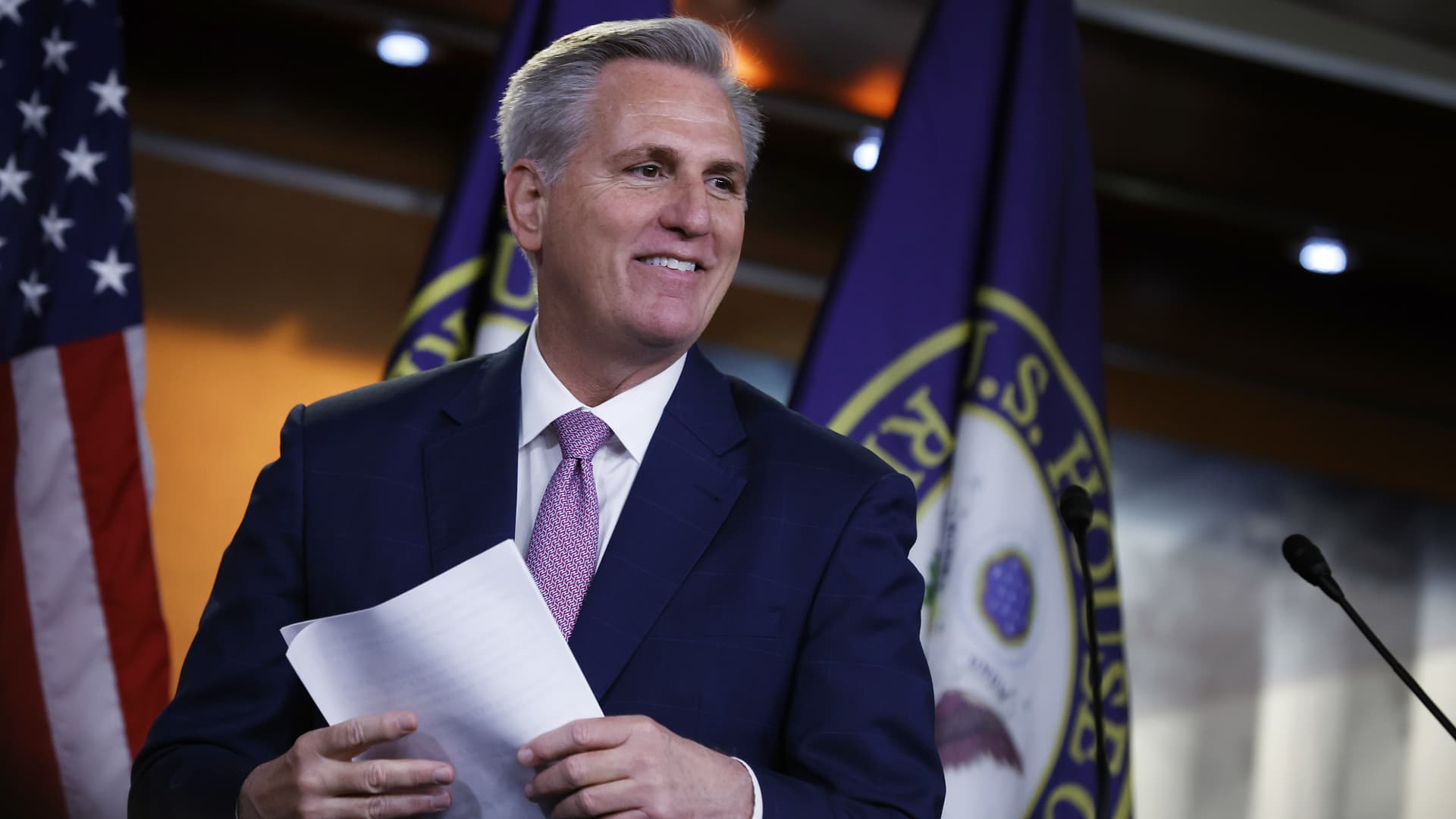Republicans will take majority control of the House, NBC News projects, ousting Democrats from key positions of power and complicating President Joe Biden‘s legislative hopes for the remainder of his term.
With the Senate staying in Democrats’ hands, congressional leadership will be divided for at least the next two years.
The outcome in the House was expected, but it didn’t happen in the way Republicans hoped it would. Democrats broadly exceeded many analysts’ expectations, dashing GOP hopes of a “red wave” that would not only net them a sweeping House majority but provide a symbolic repudiation of Democratic leadership.
Instead, Republicans are projected to take a slim lead in the House — 221-214, according to NBC’s estimate based on the handful of races that have yet to be called. The GOP’s win in the lower chamber of Congress only became clear more than a week after Election Day.
The results widened a rift within the party, as some conservatives quickly blamed their losses in winnable races on former President Donald Trump‘s influence over the quality and messaging of key candidates. Nearly all of Trump’s picks in the most competitive House races were defeated, as were many of his preferred candidates for Senate and in key gubernatorial and secretary of state elections.
Trump has defended his endorsement record while lashing out at his critics, including multiple Republican leaders. Despite his weakened standing in the Republican Party, Trump on Tuesday night launched his 2024 presidential campaign.
One day before NBC’s projection, House Minority Leader Kevin McCarthy, R-Calif., won a party vote to become the GOP nominee for speaker of the House. McCarthy won in a 188-31 vote, NBC reported, signaling that the narrow Republican majority in the next Congress may grapple with internal divisions. To become speaker, McCarthy needs at least 218 votes — a majority of the chamber — when the full House votes in early January.
Democrats’ performance cut against a persistent narrative that the party was vulnerable due to a range of factors, including Biden’s unpopularity and historical trends that disfavor the party in the White House.
But it wasn’t enough for Democrats to keep their grip on a narrow House majority. GOP candidates up and down the ballot sought to capitalize on widespread anxieties about crime and inflation, which ranked as top issues throughout the cycle and formed the basis of many attacks on Democratic leadership in Congress and the White House.
Biden’s low approval ratings hardly helped Democrats in tough House and Senate races, forcing some to distance themselves from the administration.
While Democrats overcame political headwinds in major swing states, they faltered in the solid-blue stronghold of New York, where Republicans performed stronger than some analysts expected. Democratic Congressional Campaign Committee Chairman Rep. Sean Patrick Maloney, who came under fire from his own party after a messy New York redistricting fight, lost his race and ceded his seat to GOP challenger Mike Lawler.
Biden said in a statement Wednesday evening, “Last week’s elections demonstrated the strength and resilience of American democracy.”
“There was a strong rejection of election deniers, political violence, and intimidation. There was an emphatic statement that, in America, the will of the people prevails,” Biden said.
The president congratulated McCarthy and expressed a willingness to work across the aisle. “The American people want us to get things done for them. They want us to focus on the issues that matter to them and on making their lives better,” Biden said. “And I will work with anyone – Republican or Democrat – willing to work with me to deliver results for them.”
